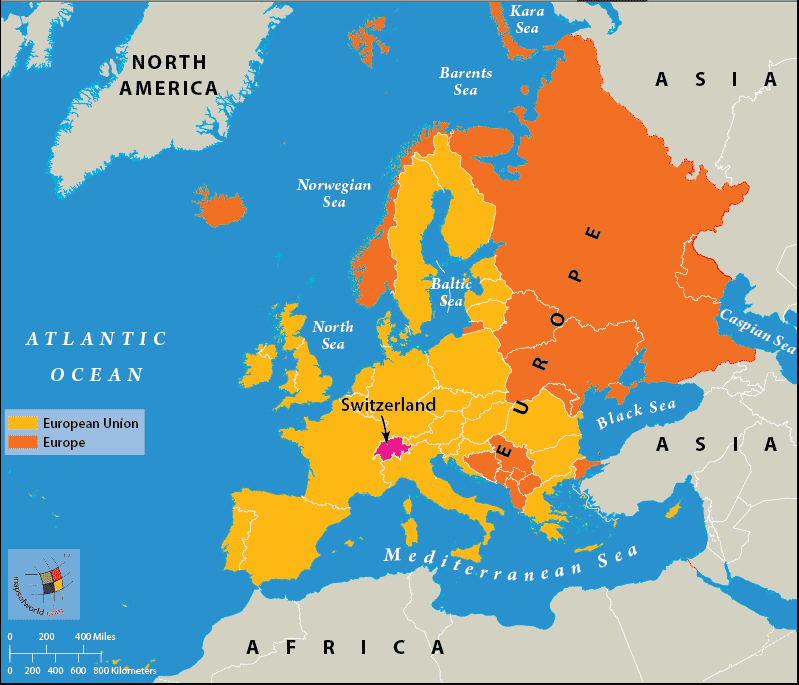Referendum on Free Movement: Switzerland-EU | 28 Sep 2020
Why in News
In a recent referendum, the Swiss people have rejected a bid to reduce immigration from the European Union (EU). Over five million Swiss voters cast ballots to decide whether to abandon an agreement with the EU which allows for the free movement of people across the country.
Key Points
- Agreement:
- Switzerland is not a member of the EU but has a series of interdependent treaties with Brussels (EU Headquarter) which allow it access to Europe's free trade area.
- 1992-2002: Switzerland negotiated and signed first bilateral agreements with the EU, making them interdependent and included the free movement of people which was again backed by a vote in 2000.
- It is a member of the EU’s Single Market, which allows people to move and work freely in all 27 EU countries as well as in Switzerland.
- Around 1.4 million out of the 8.2 million people residing in Switzerland are EU citizens and an average of 5,00,000 Swiss citizens are believed to be living in other EU countries at the moment.
- If people choose to end the agreement, the Swiss government will have to unilaterally void its free movement agreement with the EU by invoking a so-called guillotine clause.
- This clause would have impacted other bilateral deals on transport, research and trade with the EU, disrupting economic activity.
- Switzerland is not a member of the EU but has a series of interdependent treaties with Brussels (EU Headquarter) which allow it access to Europe's free trade area.
- Current Referendum:
- The right-wing Swiss People’s Party (SVP) initiated it, believing that the agreement has resulted in a significant strain on the welfare system and has led to overpopulation in the country.
- The move, sometimes called Swexit, has not been very popular among Swiss voters.
- A recent survey showed that more than 60% of respondents were against it, while a mere 35% backed it and the remaining were undecided.
- Supporters:
- The anti-free movement plan would allow Switzerland to control its borders and select only the immigrants it wants.
- Swiss citizens will also get preference for jobs and benefits in the country.
- Opponents:
- Scrapping the agreement would severely strain Swiss-EU relations.
- It would plunge a healthy economy into recession at an uncertain time and deprive hundreds of thousands of Swiss citizens of their freedom to live and work across Europe.
- The right-wing Swiss People’s Party (SVP) initiated it, believing that the agreement has resulted in a significant strain on the welfare system and has led to overpopulation in the country.
- Other Referendums:
- The freedom of movement measures were being considered alongside four other major nationwide referendums on paternity leave, tax breaks for child care, the right to hunt wolves and acquisition of around USD 6.5 billion worth of new fighter planes by 2030.
- Swiss people are given a direct say in their own affairs under the country's system of direct democracy. They are regularly invited to vote on various issues in national or regional referendums.

